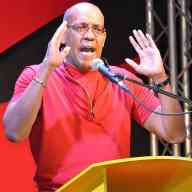To The Editor:
While some New Yorkers celebrate the onset of a new year, many low-income New Yorkers are still feeling the pain of 2010, a year when the economy continued to amplify the hardships and struggles of everyday New Yorkers.
The Community Service Society of New York (CSS) has released the second in a series of results from a survey of more than 1,400 New Yorkers, with many low- and moderate-income respondents reporting that they have struggled with basic needs such as paying rent or filling a prescription.
“While the element of surprise no longer exists in how New Yorkers are struggling to make ends meet, we now know that they suffer in relative silence, omitting essentials like prescriptions, and falling behind on rent payments and mounting credit card debt for those who have credit,” said David R. Jones, president and CEO of the Community Service Society.
The Unheard Third installment, entitled, “Hardships and Personal Worries for Low-Income New Yorkers,” shows the following:
Low-income New Yorkers are experiencing a variety of hardships.
~ 28 percent fell behind on rent or mortgage payments.
~ 29 percent had their health care costs increase.
~ 24 percent were unable to fill a prescription because of lack of money.
~ 27 percent had hours, wages or tips reduced.
~ 23 percent lost a job (overall, 36 percent experienced either job loss or hour/wage reductions, or both – about one million people).
~ Half of low-income respondents, and almost 1 in 4 moderate-income respondents, have less than $500 in savings to fall back on. This is about two million New Yorkers with nothing in savings.
~ 1 in 3 low-income New Yorkers (or close to one million people) has no savings whatsoever.
~ At least 4 in 10 New Yorkers across income bands report having credit card debt.
~ More than one-quarter of low- and moderate-income residents have debt from unpaid medical bills. (About 1.3 million low- and moderate-income New Yorkers have medical debt. Overall, more than 1.5 million New Yorkers have medical debt.)
~ 46 percent of low-income respondents (about 1.3 million) worry all or most of the time that their total family incomes won’t be enough to meet expenses and bills.
This installment of The Unheard Third also shows the following, according to Policy Associate Krista Pietrangelo:
~ More than 1 in 4 low-income New Yorkers were without health insurance coverage for part or all of last year. Across income groups, about 1 in 6 New Yorkers had no health insurance at the time of the survey.
~ Nearly half of low-income blacks and one-third of low-income Latinos report having no money in savings. More than 3 in 5 low-income blacks and over half of Latinos report having less than $500 they can fall back on.
~ People in their 30s and 40s, parents, and those without insurance are among the most likely to report having medical debt.
~ Finding or keeping a job and health care are the top two personal concerns for low- and moderate-income New Yorkers.
~ About 6 in 10 low-income New Yorkers worry that they or someone in their households will lose a job in the next year. The same proportion worries that they will not work enough hours to make ends meet.
~Low-income respondents are more than twice as likely to say that they have little or no control over their economic situations (40 percent) than higher-income respondents (16 percent).
The Unheard Third surveys 1,414 New York City residents, 18 years and older, including 900 low-income residents and 514 moderate-and higher-income residents.
Low-income respondents are defined as those that live in households earning at or below 200 percent of the federal poverty line, which is about $37,000 for a family of three or $44,000 for a family of four. Moderate-income respondents live in households earning between 200 percent and 400 percent of the federal poverty line, and higher-income respondents live in households earning over 400 percent of the federal poverty line.
Learn more about The Unheard Third 2010 survey .
“The Unheard Third,” conducted by CSS and fielded by the national polling firm Lake Research Partners, is a unique snapshot of the policy preferences and experiences of low-income New Yorkers. The survey is partially funded through the support of The New York Community Trust. CSS has used the survey to inform and guide its research, direct service programs, and policy recommendations. It has served to narrow the focus of the agency’s agenda on the working poor and reinforce its belief that public policy aimed at this population must, in part, be guided by the life experiences and ideas of New Yorkers living in poverty.
The Community Service Society of New York
For 165 years, the Community Service Society of New York has been the leading voice on behalf of low-income New Yorkers and continues to advocate for the economic security of the working poor in the nation’s largest city.






















